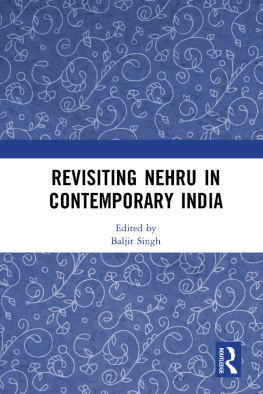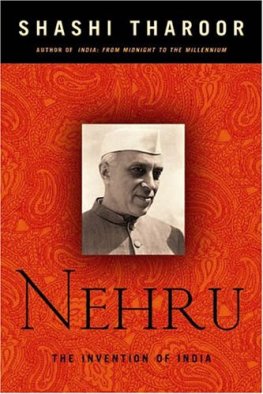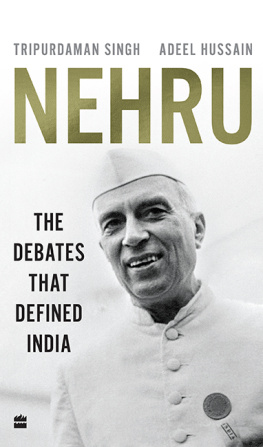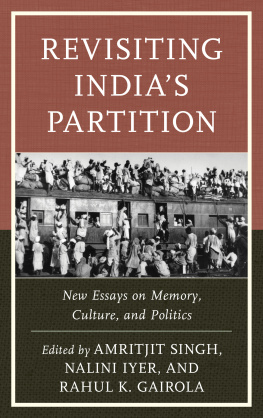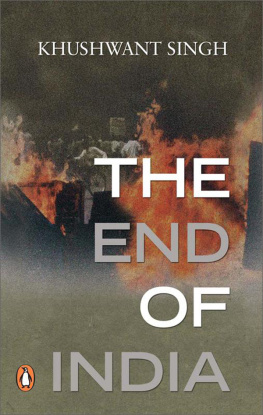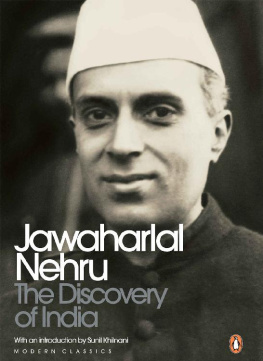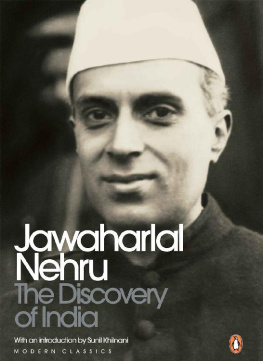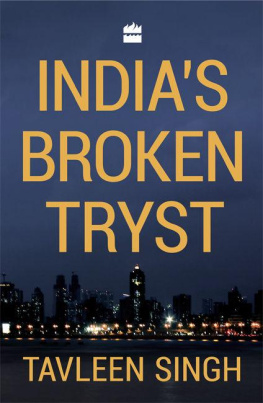REVISITING NEHRU IN CONTEMPORARY INDIA
Jawaharlal Nehru being an architect of Indian polity, economy and foreign policy set the ball rolling. However, they have witnessed cataclysmic changes over a period of time. Indian polity has witnessed different waves of reorganisation of states, evolving democracy, spelling out of quasifederal system and building a more inclusive political nation. Nehru set the agenda of economic development and framed the strategy of development accordingly. In this volume an attempt has made to have a fair understanding about Nehru by placing him in the context in which he worked and by taking into account the challenges that Post-Colonial India was facing during his time. However, the problems faced by the neo-liberal economy, and the challenges confronting Indian polity and foreign policy have again invoked the relevance of Nehruvian philosophy in contemporary India. The contributors to this volume have analysed the diverse aspects of Nehrus thinking and the policies that flowed from it to understand their relevance in contemporary Indian, Asian and global context.
Baljit Singh is Professor in Political Science and Director, Nehru Studies Centre, University of Jammu, Jammu. He is also Honorary Director, Department of Strategic and Regional Studies, in the University. He has published several research papers in various journals and books of national and international repute. He has co-edited two books: South Asia: Dynamics of Politics, Economy and Society (2006) and Politics of Identities in Jammu & KashmirA Contested Terrain (2008).
REVISITING NEHRU IN
CONTEMPORARY INDIA
Edited by
Baljit Singh
First published 2020
by Routledge
2 Park Square, Milton Park, Abingdon, Oxon OX14 4RN
and by Routledge
52 Vanderbilt Avenue, New York, NY 10017
Routledge is an imprint of the Taylor & Francis Group, an informa business
2020 selection and editorial matter, Baljit Singh; individual chapters, the contributors; and Manohar Publishers & Distributors
The right of Baljit Singh to be identified as the author of the editorial material, and of the authors for their individual chapters, has been asserted in accordance with sections 77 and 78 of the Copyright, Designs and Patents Act 1988.
All rights reserved. No part of this book may be reprinted or reproduced or utilised in any form or by any electronic, mechanical, or other means, now known or hereafter invented, including photocopying and recording, or in any information storage or retrieval system, without permission in writing from the publishers.
Trademark notice: Product or corporate names may be trademarks or registered trademarks, and are used only for identification and explanation without intent to infringe.
Print edition not for sale in South Asia (India, Sri Lanka, Nepal, Bangladesh, Pakistan or Bhutan)
British Library Cataloguing-in-Publication Data
A catalogue record for this book is available from the British Library
Library of Congress Cataloging-in-Publication Data
A catalog record for this book has been requested
ISBN: 978-0-367-51388-7 (hbk)
ISBN: 978-1-003-05548-8 (ebk)
Typeset in Galliard
Contents
Baljit Singh
Sukhdev Singh Sohal
Ranjit Singh
Simrit Kahlon
Suneel Kumar
Ranbir Singh and Saroj Malik
Ronki Ram
Ambrish Dhaka
Baljit Singh
Rajpal Budania
Baljit Singh
Suneel Kumar
Debamitra Mitra
The strength of the book lies in revisiting Nehru and finding out the relevance of his ideas in the contemporary Indian context. For instance how he helped India to consolidate as a political nation and also played a critical role in constructing Indias identity in the comity of nations through his policy posture of non-alignment. The main thrust of non-aligned policy was to retain the freedom of action in foreign affairs when the world was bipolar. Freedom of action which Nehru nurtured while formulating Indias foreign policy is very much relevant in the contemporary scenario. The process of federal infrastructuring that Nehru did while reorganising the states on the basis of language/ethnicity/region, has become a continuous process that has helped India in building a more inclusive political nation. However, the process is still going on to make India a more inclusive nation in political, economic and social sense. Likewise, Nehru conceived panchayati raj system as an instrument of community development programme in India, which has also become a third tier of Indian federal system besides helping India in the process of deepening of democracy.
When Nehru is judged as a leader, he is either appreciated for what he has done or blamed for what he could not do or handle properly when he was at the helm of affairs. Most of the time Nehrus performance has been assessed without placing him in the context in which he performed with all the limitations of a newly liberated state. In this volume an attempt has been made to have a fair understanding about Nehru by placing him in the time and space in which he worked and by also taking into account the challenges Post-Colonial India was facing during his time. The contributors to this volume have analysed diverse aspects of Nehrus thinking and policies to understand him keeping in view the time and space, and constraints thereof in which he worked but also to explore the relevance of his ideas in contemporary Indian, Asian and global context.
Nehrus model of economic development has become more relevant as globalisation has been making a retreat the world over. One of the major drawbacks of globalisation was that it created a dichotomy between the logics of democracy and neo-liberal market economy. Democracy believes in equality and inclusion, whereas globalisation believes in the principle of the survival of the fittest and hence promotes exclusion of vulnerable sections of society. Nehrus idea of mixed economy is not only the site where the logic of democratic politics and economic development meet with each other but it is also a device which provides substance to social democracy in India. This book further explores how the logic of neo-liberalism mismatches with social democracy.
Nehrus idea of social democracy and its contradictory relations with neo-liberalism and market economy in India are topics of great interest. Nehrus decision to reorganise states on the basis of language and thereby give practical shape to federalism in India, which has made the political nation more inclusive, needs to be explored. Nehrus initiative of nuclear programme has helped India to become a weaponised Nuclear State that has enhanced its national power. Nehru used foreign policy to ensure economic development at home which has further proved as a pointer for his successors to use diplomacy as a tool for economic growth.
This book is revisiting some of the issues touched by Jawaharlal Nehru during his tenure as a Prime Minister of India because those issues are very much alive in the contemporary context. These issues range from Indias domestic politics to economy and foreign policy. This volume is an outcome of papers invited from scholars working in the different Indian Universities, Institutes and Colleges. I am indeed grateful to all the contributors for their cooperation. It is in fact their endeavours that have made the publication of this volume possible. The editor acknowledges the help rendered by Ms. Neetika Verma, PhD scholar for reading the proofs of this volume. A special word of thanks to Ms. Kalpana Shukla and Mr. Aditya Phogat of Knowledge World, New Delhi for their sincere efforts in bringing out this volume.



